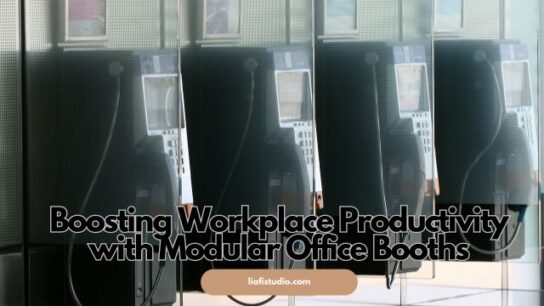Key Takeaways:
- Deep understanding of shipping container offices’ design, aesthetic, and practical advantages.
- Insights on the ecological and financial benefits, positioning container offices as a responsible choice.
- Comprehensive knowledge of container offices’ ease of relocation, scalability, and construction efficiencies.
- Appreciation for the durability and understanding of regulatory aspects in implementing container offices.
- Exploration of innovative and non-traditional uses and predictions for the future of container offices in the workspace industry.
Table of Contents:
- Introduction to Shipping Container Offices
- Design Flexibility and Aesthetics of Container Offices
- Sustainability and Green Benefits
- Cost-Effectiveness and Financial Insights
- Mobility and Scalability
- Time-Efficiency in Construction and Setup
- Durability and Maintenance Aspects
- Zoning Laws and Building Regulations
- Innovative Uses Beyond Conventional Office Space
- Future Outlook and Industry Predictions
Introduction to Shipping Container Offices
In an age where adaptability and innovation are crucial to business success, the emergence of shipping container offices has marked a turning point in how we think about workspaces. Once simple steel structures primarily used for cargo transport, these containers have been ingeniously repurposed into fully functional offices, offering a resilient and modular solution to companies worldwide. As concerns over efficiency and eco-consciousness rise, the concept of a shipping container office has seen a surge in popularity, representing an intelligent alignment of environmental stewardship with cutting-edge design.
Design Flexibility and Aesthetics of Container Offices
More structures are more accommodating than shipping container offices in design and customizability. These modular units afford an exceptional degree of design flexibility, allowing for endless configurations tailored to the specific needs of any business. The possibilities are nearly limitless, from sleek, minimalistic layouts that foster a culture of open communication to compartmentalized designs that cater to privacy needs. Aesthetically, container offices provide a unique industrial charm that can be adjusted to fit any corporate image or branding, allowing companies to make a bold architectural statement. Innovative insulation and cladding options transform these office spaces into visually appealing and functional environments.
Sustainability and Green Benefits
A shipping container office is at the forefront of the green construction movement, echoing the global call for more sustainable building practices. Repurposing retired containers as offices breathes new life into steel structures that may otherwise languish unused, reducing the environmental impact of resource extraction and new material production. By adhering to environmentally conscious principles, businesses that opt for shipping container conversions directly contribute to a lower carbon footprint while projecting a progressive image aligned with the values of eco-aware clients and employees.
Cost-Effectiveness and Financial Insights
From a financial lens, utilizing shipping containers for office space is a cost-efficient model. Initial investments are often notably lower than those associated with traditional brick-and-mortar constructions. This affordability arises from the inherent structural strength of containers that negates the need for elaborate foundations and framing. Further financial advantages can be realized through the potential for qualifying for tax incentives to encourage environmentally sustainable developments, thereby enhancing the overall value proposition of such innovative office solutions.
Mobility and Scalability
The modern business landscape is dynamic, with an increasing demand for flexibility regarding location and space. Container offices stand out as a beacon of mobility, easily transportable to different sites as business needs evolve. This mobility is particularly advantageous for industries that require temporary project sites or have rapidly changing spatial demands. Similarly, the modularity of container offices means that scaling up—an often expensive and rigid process with traditional buildings—is straightforward and cost-efficient, allowing for an agile response to escalating business growth or diversification.
Time-Efficiency in Construction and Setup
Time is a strategic asset in fast-paced economic environments that cannot be wasted. Shipping container offices are champions of time efficiency. The transformative process from container to office is streamlined, often involving prefabrication methods that significantly reduce construction timeframes. Unlike the months or years required to erect conventional buildings, containers can be prepared offsite and installed rapidly once on location. This agility ensures businesses can become operational with minimal downtime, a crucial competitive edge in today’s market.
Durability and Maintenance Aspects
Beyond their aesthetic and practical appeal, shipping containers are inherently sturdy and engineered to withstand the rigors of international shipping and harsh climatic conditions. When repurposed into office spaces, this translates into exceptional durability. With minimal upkeep requirements, container offices can maintain their structural integrity and appearance over extended periods, making them a long-term investment that continues to deliver value. A routine maintenance schedule and appropriate weatherproofing and insulation can further protect these assets, ensuring they serve their purpose for decades.
Zoning Laws and Building Regulations
The innovative nature of container offices often leads to them being subject to an evolving array of zoning laws and building regulations. Depending on the jurisdiction, businesses may face varying degrees of regulatory navigation. Ensuring compliance with local ordinances, understanding the nuances of obtaining permits, and sometimes pioneering the path for approval are part and parcel of the process. However, with a thoughtful approach to compliance and consultation with regulatory experts, the transformative vision of a shipping container office can most often be realized without significant legal impedance.
Innovative Uses Beyond Conventional Office Space
While the utility of shipping container offices in business contexts is straightforward, their innovative uses extend well beyond conventional workspaces. These versatile structures have been transformed into anything from chic pop-up retail shops and community event centers to tranquil artist retreats and even educational classrooms. This wide array of applications demonstrates the potential of shipping containers to evolve far beyond their original intended use, showcasing their adaptability and appeal in diverse settings.
Future Outlook and Industry Predictions
The intersection of eco-friendliness, economic sense, and innovative design that shipping container offices represent sets them on a trajectory of growing interest and adoption within the marketplace. Industry predictions suggest that these agile, mobile, and sustainable workspaces will increasingly become a staple in the evolution of office spaces. With evolving workplace trends leaning towards adaptability and environmental sensibility, container offices are well-positioned to meet these needs.







